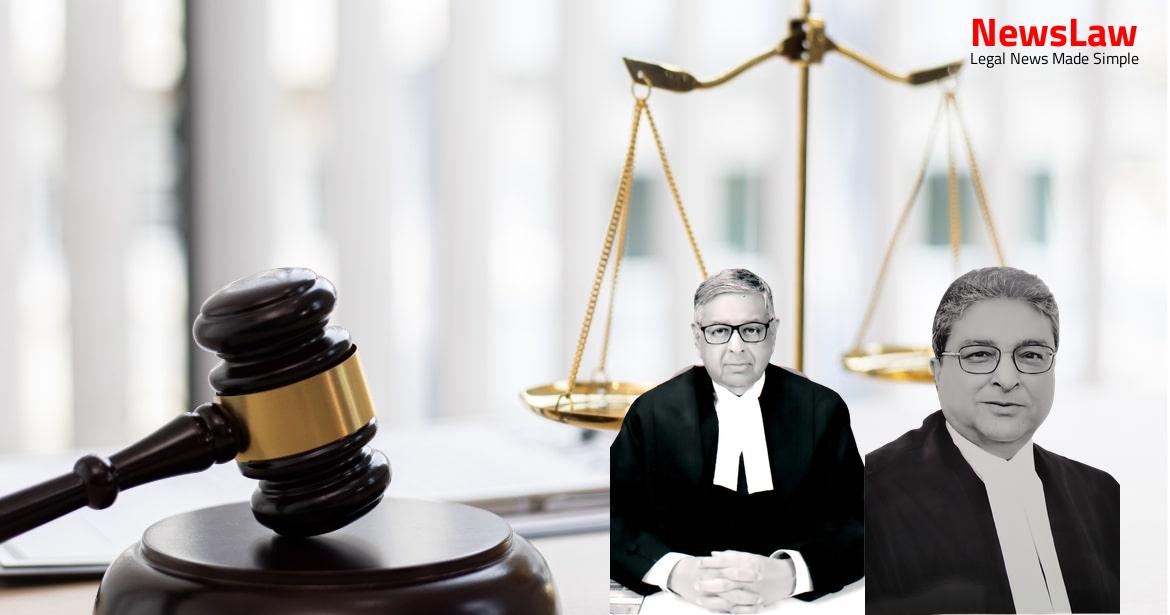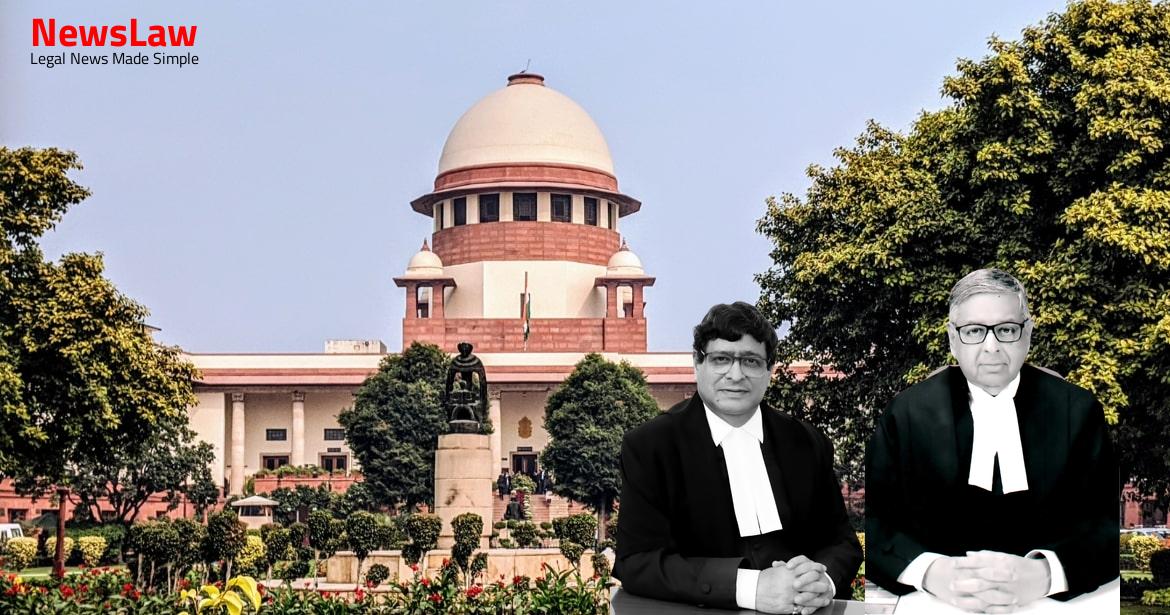In a recent court judgment, the significance of possession in property law was extensively analyzed. The court delved into the crucial role possession plays in determining legal ownership and the implications it has on seeking specific reliefs in a suit. This summary provides a comprehensive overview of the court’s legal analysis on the importance of possession in property law.
Facts
- The plaintiff had filed a suit in 1987 for declaration of ownership of certain immovable property and for injunction against interference with possession.
- The plaintiff’s legal representatives were brought on record after his death.
- The suit was contested by the defendants who claimed title for themselves.
- Attempts of trespass by the defendants were alleged in the suit.
- Reliefs sought in the suit included declaration of ownership and permanent injunction.
- The 1987 suit was related to the same property as a previous 1982 suit filed by the original plaintiff.
- The Trial Court found that the plaintiff had proved ownership of the property.
- Defendants failed to cross-examine plaintiff witnesses and present their evidence.
- High Court remitted the matter back to the Trial Court.
- The original plaintiff was the son-in-law of the first defendant in the suit.
- The suit was dismissed on the grounds of not establishing lawful possession and title within the limitation period.
- Plaintiffs failed to demonstrate possession after the dismissal of the 1982 suit.
- Plaintiffs sought amendment of the plaint to include possession as an alternative relief.
- RoR extracts suggested plaintiff’s possession, but previous suit for injunction was dismissed for lack of proof of possession.
- Dismissal of earlier suits did not prevent plaintiff from seeking comprehensive relief of title declaration.
- Defendants’ plea of benami transaction was not accepted by the Trial Court.
- Trial Court’s decision was upheld on appeal as plaintiff could not establish possession.
- Judgment to be concluded by end of December 2004.
- The High Court judgment delivered on 19 August, 2004 remanded the matter.
- The suit was held to be time-barred in the judgment.
Also Read: Clarifying Legal Requirements for Approval in Disciplinary Proceedings
Analysis
- The judgment discusses the issue of possession and its significance in the case.
- It emphasizes that possession is a crucial aspect in determining legal ownership of property.
- The courts rejected the plaintiff’s claim for possession due to lack of evidence establishing it.
- The importance of seeking further relief of possession in addition to a declaration of title and injunction is highlighted.
- The proviso to Section 34 of the Specific Relief Act, 1963 is analyzed in the context of seeking specific reliefs in a suit.
- The judgement discusses the need for seeking relief of possession to prevent a suit from being dismissed on maintainability grounds.
- The concept of ‘corpus and animus’ in relation to possession of property is explained.
- The court’s decision on the plaintiff’s application for amendment of the plaint to include relief for recovery of possession is discussed and the reasoning for rejecting the application is outlined.
- There is no prohibition on a party from seeking an amendment in the plaint to include unsought relief, as long as it is saved by limitation.
- Defendants must raise the issue at the earliest if there is a need for an amendment in the plaint.
- The High Court’s decision highlighting that possession of the suit property was not established by the plaintiffs, hence injunctive relief could not be granted.
- The necessity for plaintiffs to amend the plaint before the judgment to seek relief of possession if they are not in possession on the date of the suit.
- Clarification on the position of law regarding plaintiff’s possession of the suit property based on reported decisions and a specific case.
- The High Court did not negate the finding that the plaintiffs were disentitled to a declaration of ownership of the property.
- In such circumstances, the discretion to grant a declaratory decree on ownership cannot be denied solely because the original plaintiff failed to establish further or consequential relief.
- The judgment of the High Court that the plaintiffs were not entitled to injunctive relief and rejection of their plea for possession introduction is sustained.
Also Read: Prospective Application of Consumer Protection Act Time Limit
Decision
- Plaintiffs are declared as owners of the suit property
- Impugned judgment of the trial court is set aside
- Matter is remitted to the Trial Court for fresh disposal
- Appeal is partly allowed
- No orders as to costs
Also Read: Judicial Review in Disciplinary Proceedings
Case Title: AKKAMMA Vs. VEMAVATHI (2021 INSC 785)
Case Number: C.A. No.-005884-005884 / 2009



